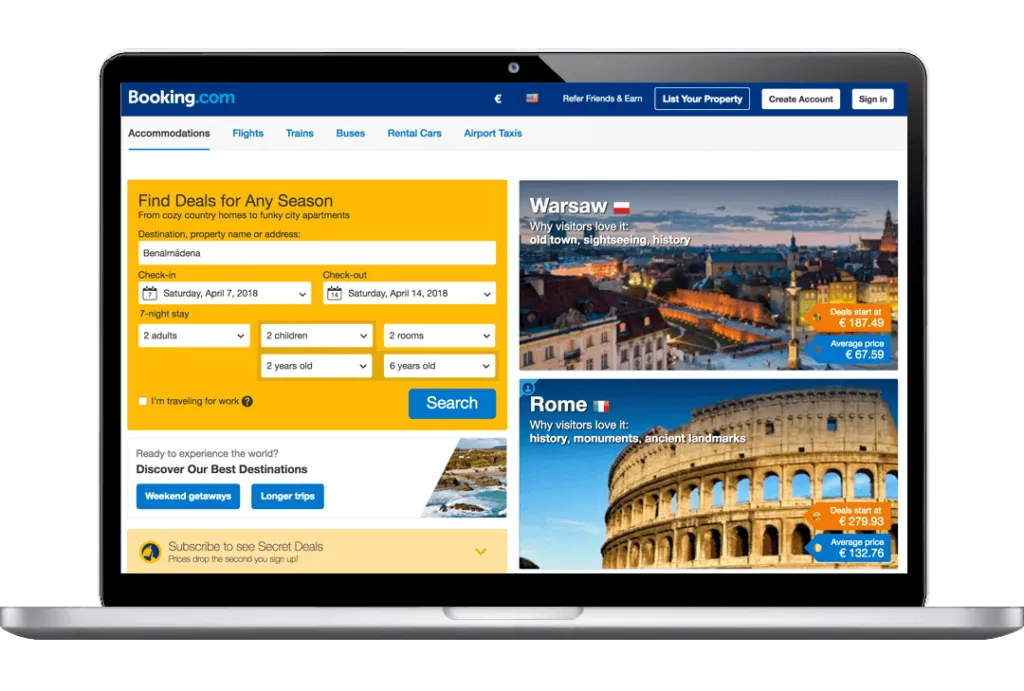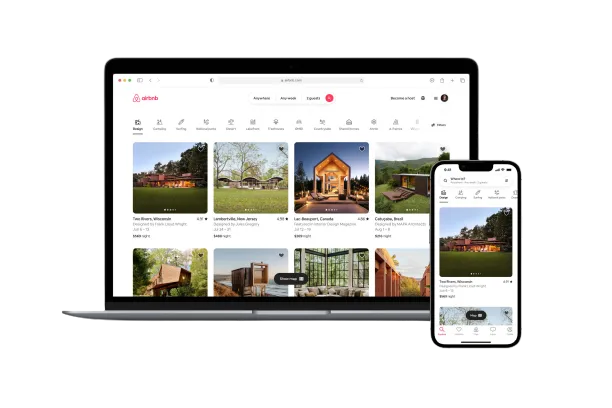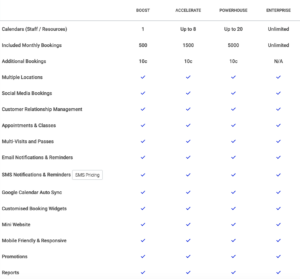In this digital era, everyday activities have undergone a remarkable transformation. From shopping to learning, socialising to streaming, and even managing our daily commutes – our lives revolve around smart devices. Amidst these profound changes, a fascinating innovation stands out – bookable marketplaces.
Imagine planning your long-awaited vacation. Gone are the days when you’d have to spend countless hours calling airlines for tickets, contacting hotels for rooms, and coordinating car rentals. Now, all it takes is logging into a unified platform like a bookable marketplace, inputting your preferences, and voila! Within moments, you have your entire holiday booked. It’s this remarkable convenience that makes digital platforms indispensable in our fast-paced lives.
So, what are Bookable Marketplaces?
Think of them as bustling virtual marketplaces. But instead of vendors selling fruits or trinkets, you have service providers offering a broad array of bookable services. From accommodations to travel tickets, restaurant reservations to exciting local experiences, everything is available and bookable with a few taps on your device.
Understanding bookable marketplaces is crucial – not just for their convenience but for their transformative impact on various industries. They have redefined our interaction with services and even shifted economic trends.
Let’s delve deeper into these transformative platforms, exploring their features, benefits, and profound impacts.

Understanding Bookable Marketplaces
Bookable marketplaces are online platforms where services and activities can be booked at your convenience. Picture a vibrant farmers market with an array of vendors selling unique items. Similarly, bookable marketplaces host a plethora of service providers offering a range of services like haircuts, yoga classes, or even art workshops. The platform directly connects service providers with customers, opening doors for local businesses to a global audience and providing consumers with unparalleled options. And you, all from your home’s comfort, can explore these services, compare prices and reviews, verify availability, and book at a time that works best for you.
What distinguishes these platforms is their capacity to establish a direct link between service providers and consumers. They can be likened to digital matchmakers. For instance, if you wanted to book a hotel room, you would previously need to contact the hotel directly or via a travel agent. Now, with platforms like Booking.com hosting an array of hotels, you can choose one that meets your needs and budget.
But the benefits extend beyond mere convenience. Bookable marketplaces democratise the service landscape. They empower small businesses to reach out to a broader audience, while consumers enjoy an unprecedented range of options. These platforms level the playing field, offering opportunities for both service providers and consumers.
Key Features
To truly grasp bookable marketplaces, understanding the critical components that drive these platforms is essential. Here are some integral features found in most bookable marketplaces:
Two-sided marketplace: These platforms resemble a physical marketplace with vendors and customers. Service providers can list their offerings, and consumers can browse, compare, and book these services. This dynamic digital environment allows providers to have a 24/7 digital shopfront while consumers have the convenience of having all the information they need in one place.
Booking system: The cornerstone of any bookable marketplace is its booking system. This system lets users reserve activities and services for specific dates and times. It often includes features like availability calendars, booking confirmations, cancellations, and reminders, ensuring a seamless transaction for both the service provider and the consumer.
Secure payment systems: Trust is fundamental in any transaction, more so in an online setting. Reliable payment systems ensure secure transactions, with platforms often handling payments on behalf of the providers.
Review and rating systems: These systems let past users share their experiences, aiding future users in making informed decisions before booking. They also ensure providers maintain a high standard of service at a fair price.
Communication tools: You will generally find bookable marketplaces offer direct communication tools for providers and consumers. This feature ensures clear and timely communication, helping resolve any issues that may arise.
These features work synergistically to create an efficient, user-friendly, and reliable platform. They streamline the booking process, making it more accessible for both providers and consumers. The result is a more connected, efficient, and equitable digital economy.
Impact & Benefits
Bookable marketplaces have substantially transformed the way we consume services, offering numerous benefits for both providers and consumers.
For service providers, particularly small businesses or individual entrepreneurs, these platforms open doors to a global audience. A local B&B owner in a small town can attract tourists from around the world through a platform like Airbnb. This exposure not only amplifies their revenue but also contributes to their community by attracting diverse visitors.
Consumers relish an array of choices and discover experiences they didn’t know existed. They can compare offerings based on price, quality, location, and customer reviews. They also enjoy the convenience of booking services from anywhere, at any time.
Moreover, bookable marketplaces contribute to the economy by fostering competition and innovation. As providers vie for consumers’ attention, they are motivated to refine their services and offer competitive prices. This landscape encourages innovation, driving service quality for the ultimate benefit of the consumer.
Examples of Bookable Marketplaces
Having discussed the impact and benefits of bookable marketplaces, let’s explore some prominent examples.

Airbnb: Airbnb, a bookable marketplace pioneer, connects homeowners with travellers seeking unique accommodations. It offers a variety of options, redefining travel.
Uber: Uber disrupted the transportation industry by directly linking drivers with riders. Its user-friendly app facilitates quick booking, enhancing commuting convenience and efficiency.
TaskRabbit: This platform connects you with skilled ‘Taskers’ to handle home services. You can book a tasker based on their skills, reviews, and hourly rates, revolutionising the gig economy.
Turo: Often referred to as the “Airbnb for cars,” Turo is a peer-to-peer car-sharing marketplace where you can rent cars directly from owners. It offers a diverse range of options.
Finally, bookable marketplaces also aid in times of crisis, as seen with South Australia’s Great State Voucher program. This initiative drove over $90 million into the state’s economy to support businesses impacted by Covid. Over 500 operators were onboarded via Nabooki’s marketplace platform, allowing voucher winners to easily discover, compare, and book unique experiences, thereby directly contributing to local economies.
Summing up, bookable marketplaces have revolutionised our digital society, streamlining transactions and boosting accessibility. These platforms open a world of possibilities for providers and offer unmatched ease for consumers. In today’s digital age, they will play an increasingly crucial role in shaping our experiences. Whether you’re a consumer trying to save money and stay local or a service provider hoping to broaden your audience, embracing the world of bookable marketplaces is paramount. They are not merely a fleeting trend; they are fundamental to the future of our digital economy. So, seize the opportunity to join the digital revolution today.



